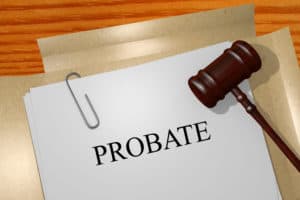
The word probate is from the Latin word, meaning “to prove.” It’s the court-supervised process of authenticating the Last Will and Testament of a person who has died and then taking a series of steps to administer their estate. The typical situation, according to the article “Some helpful hints to aid in navigating the probate process” from The Westerly Sun, is that someone passes away and their heirs must go to the Probate Court to obtain the authority to handle their final business and settle their affairs.
Many families work with an estate planning attorney to help them go through the probate process.
Regardless of whether or not there’s a Will, someone – usually a spouse or adult child – asks the court to be appointed as the executor of the estate. This person must accomplish a number of tasks to make sure the decedent’s wishes are followed, as documented by their Will.
People often think that just being the legally married spouse or child of the deceased person is all anyone needs to be empowered to handle their estate, but that’s not how it works. There must be an appointment by the Probate Court to manage the assets and deal with the IRS, the state, creditors and all of the deceased person’s outstanding personal affairs.
If there is a Will, once it’s validated by the court the executor begins the process of identifying and valuing the assets, which must be reported to the court. The last bills and funeral costs must be paid, the IRS must be contacted to obtain an estate taxpayer identification number and other financial matters will need to be addressed. Estate taxes may need to be paid, at the state or federal level. Final income tax returns, from the last year the person was alive, must be paid.
The probate process takes several months and sometimes more than a year. That includes distributing the assets and making gifts of tangible personal property to the heirs. Once this task is completed, the executor (or their legal representative) contacts the court. When everything has been done and the judge is satisfied that all business on behalf of the decedent has been completed, the executor is released from his duty and the estate is officially closed.
When there is no Will, the probate process is different. The laws of the state where the deceased lived will be used to guide the distribution of assets. Kinship, or how people are related, will be used, regardless of the relationship between the decedent and family members. This can often lead to fractures within a family, or to people receiving inheritances that were intended for other people.
Reference: The Westerly Sun (Nov. 16, 2019) “Some helpful hints to aid in navigating the probate process”
Other articles you may find interesting:
Should I Use a Bank as My Executor Instead of a Family Member?








